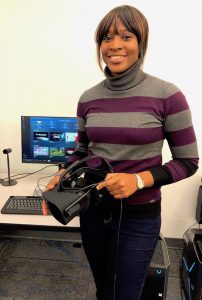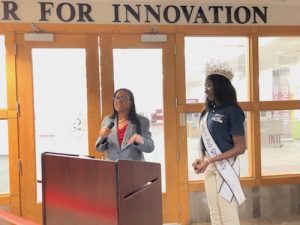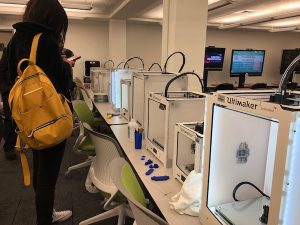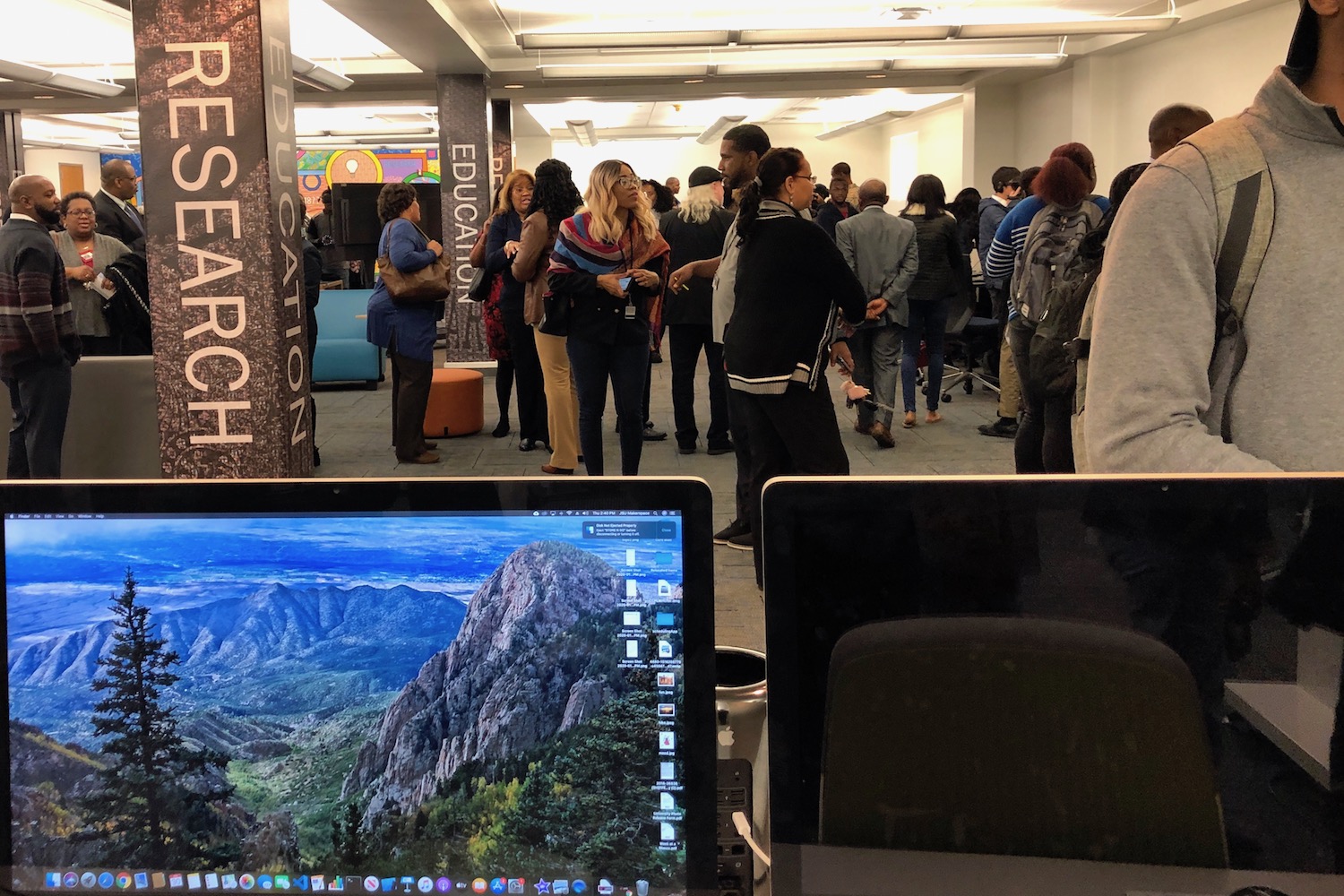
The new Center for Innovation at Jackson State University brings students and faculty from a variety of backgrounds together in an entrepreneurial setting on campus.
At first blush, Dr. Nwanne Onumah doesn’t seem like an obvious fit for the role of Virtual Reality (VR) curator. Onumah is a medical doctor from Nigeria who, after teaching pathology in the Caribbean, moved to Jackson to pursue a doctorate in epidemiology.
But being a fellow at Jackson State University’s new Center for Innovation is giving her a chance not just to help other people learn more about VR, but also to explore the potential for VR technology in healthcare. With her background in medicine, she’s meeting and working with students who have the know-how to build the VR tools that she could imagine using to fight epidemics.
“It’s the key to this Center functioning well,” Dr. Onumah said. “People can have ideas, but [without the Center] you wouldn’t have all the people to collaborate and see if you can actually make your idea happen.”
That’s the exact reason that Dr. Almesha Campbell, director of the Center, has picked fellows with a variety of backgrounds and in different majors and degree programs.
“After taking some VR design courses myself, I realized I need art students; I need computer science students; I need engineers,” Dr. Campbell said. “But I need marketing and journalism students, too, because I need them to help do some stuff in this space.”

The Center for Innovation officially opened in January 2020, although Campbell had been working on it for many months prior. The Center includes a VR lab, computers with design and graphics software, 3-D printers, a podcast/video lab, and equipment for working with textiles and buttons. It also has breakout rooms for student entrepreneurs to have meetings and a large open space for classes and workshops.
Dr. Campbell’s official role at the university is Director of Technology Transfer and Commercialization, where she helps faculty and university employees license or otherwise monetize the intellectual property they create through research and development. She says that a few years ago, she realized that the role of “tech transfer” at the university level needed to evolve.
“We are now expected to take you through the entire process of commercialization,” she said. “Traditionally, we would do licensing, but now we are expected to get these startups going, teach them entrepreneurship, and help them find investors and industry partners.”
JSU is part of the National Science Foundation’s I-Corps program, which encourages students to take a science-driven business idea and work to develop it into a commercial product with a faculty member and a business mentor. The Center provides a space for those meetings so students and their mentors can get together to discuss the project and look at designs and prototypes.

Not all of the equipment in the Center for Innovation is new—JSU had a few different labs and maker spaces on campus, but Dr. Campbell asked the university administration for a single location in the H.T. Sampson Library and collected the equipment under one roof. Now students, faculty and even community members can come into the space to learn more about technology or to create their own product prototypes.
“I’m bringing it all to a location that is more visible, more utilized, where students are trying to use all aspects of it to create a business,” she said.”Then I’m here to help them with technology transfer, commercialization, and entrepreneurship.”
With her focus on public health, Dr. Onumah said she will be looking to the more technical fellows and other participants at the Center to help her create VR applications. She’s working on ideas for using VR to train medical personnel in the field or otherwise combat the outbreak of disease.
“Virtual reality just makes things come alive,” Dr. Onumah said, after talking about some of the apps that already exist for medical professionals and students.
VR already allows students to explore the bloodstream, examine organs and learn more about the human body in realistic ways without resorting to cadavers.
“You’re just in a different world altogether and you’re able to see what’s really possible,” she said.

